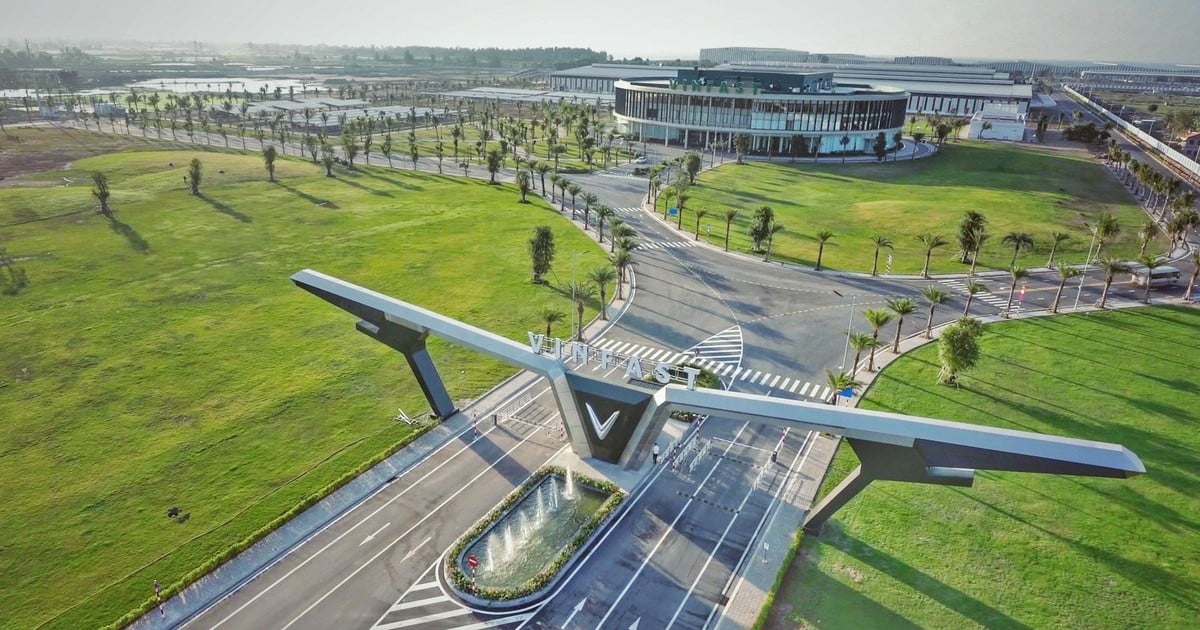
 A normal morning at Darling Cafe, a small coffee shop on Tam Trinh Street (Hanoi). Ms. Mai - the owner, has just received a new order from the Be app. This is the 8th order she has received from Be in just one morning. Benefiting greatly from the orders on the app, this woman did not know that the data hidden behind her phone had completely changed the way she does business. With each cup of coffee delivered, the data about that purchasing behavior has been saved, aggregated and analyzed by the app. In subsequent orders, if the user continues to need to order a drink, the store they purchased from will be suggested by the app and displayed right in front of the viewer. Thanks to the recorded customer experience journey, along with time, the app's navigation algorithm and driver selection will be more and more optimized. And therefore, the delivery time is also increasingly shortened. This anecdote is just one example of how data is transforming the economic landscape in Vietnam. By 2024, advances in data collection and analysis will not only help small and medium-sized businesses like Mai’s coffee shop earn more revenue, but will also open the door to a brighter and more promising future for the entire economy.
A normal morning at Darling Cafe, a small coffee shop on Tam Trinh Street (Hanoi). Ms. Mai - the owner, has just received a new order from the Be app. This is the 8th order she has received from Be in just one morning. Benefiting greatly from the orders on the app, this woman did not know that the data hidden behind her phone had completely changed the way she does business. With each cup of coffee delivered, the data about that purchasing behavior has been saved, aggregated and analyzed by the app. In subsequent orders, if the user continues to need to order a drink, the store they purchased from will be suggested by the app and displayed right in front of the viewer. Thanks to the recorded customer experience journey, along with time, the app's navigation algorithm and driver selection will be more and more optimized. And therefore, the delivery time is also increasingly shortened. This anecdote is just one example of how data is transforming the economic landscape in Vietnam. By 2024, advances in data collection and analysis will not only help small and medium-sized businesses like Mai’s coffee shop earn more revenue, but will also open the door to a brighter and more promising future for the entire economy. 
 According to the Why Market Research Is Important report, 60% of companies that do a good job of market research with data will have higher profits than companies that do not do this. Statistics from Forrester research show that 54% of businesses believe that data analysis will directly impact revenue, 44% even think that this action will create a competitive advantage over competitors. Making a strategy based entirely on data will be a way to help businesses have a reliable "compass", especially on e-commerce platforms. Through data analysis, businesses can make business decisions 3 to 5 times faster, creating a competitive advantage in execution speed and developing proactive employee capabilities, avoiding unnecessary waste of resources.
According to the Why Market Research Is Important report, 60% of companies that do a good job of market research with data will have higher profits than companies that do not do this. Statistics from Forrester research show that 54% of businesses believe that data analysis will directly impact revenue, 44% even think that this action will create a competitive advantage over competitors. Making a strategy based entirely on data will be a way to help businesses have a reliable "compass", especially on e-commerce platforms. Through data analysis, businesses can make business decisions 3 to 5 times faster, creating a competitive advantage in execution speed and developing proactive employee capabilities, avoiding unnecessary waste of resources.  In fact, Metric has witnessed many dramatic changes in businesses when applying data to business decisions. At the end of 2022, an electronics distributor recorded losses in an extremely gloomy market context. To solve the problem, this business deeply discounted its products, but that meant that profits dropped, even to negative levels. Cutting staff or closing some locations was also done to save maximum costs, however, that was not a long-term solution. When using data to find ways to improve the situation, they discovered a TV model that was selling very well on e-commerce platforms. After the analysis and evaluation process, this business decided to trust the data, imported the product to sell, and as a result, revenue and market share improved significantly. The above example shows that, when used properly, data can bring tremendous power, beyond imagination. Accurate data will be a solid foundation for management agencies, supporting the development of appropriate policies, thereby promoting the growth rate of the Vietnamese economy. For the business community, data helps them minimize unnecessary mistakes, promote sustainable growth instead of using "short-term" strategies such as following trends, dumping, etc. Data analysis will be the most promising way to help businesses achieve both fast and long-term growth goals at the same time.
In fact, Metric has witnessed many dramatic changes in businesses when applying data to business decisions. At the end of 2022, an electronics distributor recorded losses in an extremely gloomy market context. To solve the problem, this business deeply discounted its products, but that meant that profits dropped, even to negative levels. Cutting staff or closing some locations was also done to save maximum costs, however, that was not a long-term solution. When using data to find ways to improve the situation, they discovered a TV model that was selling very well on e-commerce platforms. After the analysis and evaluation process, this business decided to trust the data, imported the product to sell, and as a result, revenue and market share improved significantly. The above example shows that, when used properly, data can bring tremendous power, beyond imagination. Accurate data will be a solid foundation for management agencies, supporting the development of appropriate policies, thereby promoting the growth rate of the Vietnamese economy. For the business community, data helps them minimize unnecessary mistakes, promote sustainable growth instead of using "short-term" strategies such as following trends, dumping, etc. Data analysis will be the most promising way to help businesses achieve both fast and long-term growth goals at the same time. 

There are many reasons to believe that the data economy will play an important role in driving Vietnam's economic growth from 2024. First, as traditional economic growth drivers such as exports show signs of decline, the data economy can bring opportunities for expansion and diversification to the Vietnamese economy.

Industries such as e-commerce, fintech, healthtech, and smart manufacturing are all heavily reliant on data-driven solutions. Their growth will contribute significantly to overall economic output. The data economy also helps increase labor productivity. By harnessing the power of data analytics, businesses can optimize operations, improve decision-making, and increase efficiency. This promises to contribute significantly to economic growth and competitiveness. Vietnam’s data economy by 2024 will grow steadily and become increasingly influential. In its efforts to become a regional data service hub, cross-border agreements and knowledge exchange initiatives will support Vietnam in technology transfer and market access. International cooperation and partnerships will play a key role in strengthening Vietnam’s position in the global data economy. The Government’s continued commitment to supporting digital transformation across industries and creating an enabling environment for innovation will drive the growth of the data economy. Investment in digital infrastructure, regulatory frameworks and education will pave the way for sustainable growth in this sector. 
 Vietnam currently has three bright spots in the data economy. The first is the awareness of the importance of data. From the central to local levels, from government agencies to organizations and businesses, everyone has begun to consider data as a resource and strategic asset. Leaders and managers at all levels want to exploit and understand data to improve management performance, optimize processes, make decisions and operate based on data, etc. Many businesses have applied and exploited data to improve customer experience, automate marketing, optimize inventory, optimize costs, etc. The next bright spot is innovation. Data is a resource, a source of inspiration for creativity and innovation. We are seeing a rapidly growing Vietnam, along with the application of technologies, platforms and data mining in many industries and fields.
Vietnam currently has three bright spots in the data economy. The first is the awareness of the importance of data. From the central to local levels, from government agencies to organizations and businesses, everyone has begun to consider data as a resource and strategic asset. Leaders and managers at all levels want to exploit and understand data to improve management performance, optimize processes, make decisions and operate based on data, etc. Many businesses have applied and exploited data to improve customer experience, automate marketing, optimize inventory, optimize costs, etc. The next bright spot is innovation. Data is a resource, a source of inspiration for creativity and innovation. We are seeing a rapidly growing Vietnam, along with the application of technologies, platforms and data mining in many industries and fields.  The third bright spot is that the goal of developing a green economy, a circular economy, and a sharing economy based on data is becoming a strong force and driving force for the development of Vietnam's economy in general and the data economy in particular. Besides the bright spots, Vietnam's data economy also has many dark spots. We do not have a scientific study to determine the scale of Vietnam's data economy in the true sense, from which to determine a synchronous strategy from the central to local levels, as well as scientific implementation solutions. The ability to clearly understand, utilize, and exploit the data potential of most organizations and businesses is still limited. Training and development of data mining skills in universities, educational institutions, or within organizations and businesses themselves is still lacking and weak. Vietnam has many opportunities and favorable conditions to develop a data economy. This advantage comes from the right direction of the Government and the abundant energy from the young population, with an Internet access rate of up to 80%. However, in 2024, our country will also face two challenges related to data issues. These are the challenges of building a legal corridor, data standards and regulations, data sharing and interconnection mechanisms, and the shortage of quality human resources. According to estimates, Vietnam will need about 1-1.5 million employees working in the data field in the next 3-5 years. Looking at the lessons learned from the top 5 countries leading the world in data economy such as the US, China, Japan, Germany, and the UK, they have spent decades building institutions, strategies, and investing billions of dollars to build the market, but it was not until 2020 that a clear data strategy and policy were basically formed. Therefore, in my personal opinion, in 2024, the data economy cannot become a new growth driver for Vietnam. To promote the potential of the data economy, in 2024, Vietnam should resolutely build digital infrastructure, create data and deploy it synchronously from the central to local levels, in all key industries. Vietnam also needs to build a knowledge base on data mining, successful examples of using data with industries and levels, and at the same time widely communicate to spread this information to every corner of social life. Trong Dat Design: Minh Hoa Vietnamnet.vnSource
The third bright spot is that the goal of developing a green economy, a circular economy, and a sharing economy based on data is becoming a strong force and driving force for the development of Vietnam's economy in general and the data economy in particular. Besides the bright spots, Vietnam's data economy also has many dark spots. We do not have a scientific study to determine the scale of Vietnam's data economy in the true sense, from which to determine a synchronous strategy from the central to local levels, as well as scientific implementation solutions. The ability to clearly understand, utilize, and exploit the data potential of most organizations and businesses is still limited. Training and development of data mining skills in universities, educational institutions, or within organizations and businesses themselves is still lacking and weak. Vietnam has many opportunities and favorable conditions to develop a data economy. This advantage comes from the right direction of the Government and the abundant energy from the young population, with an Internet access rate of up to 80%. However, in 2024, our country will also face two challenges related to data issues. These are the challenges of building a legal corridor, data standards and regulations, data sharing and interconnection mechanisms, and the shortage of quality human resources. According to estimates, Vietnam will need about 1-1.5 million employees working in the data field in the next 3-5 years. Looking at the lessons learned from the top 5 countries leading the world in data economy such as the US, China, Japan, Germany, and the UK, they have spent decades building institutions, strategies, and investing billions of dollars to build the market, but it was not until 2020 that a clear data strategy and policy were basically formed. Therefore, in my personal opinion, in 2024, the data economy cannot become a new growth driver for Vietnam. To promote the potential of the data economy, in 2024, Vietnam should resolutely build digital infrastructure, create data and deploy it synchronously from the central to local levels, in all key industries. Vietnam also needs to build a knowledge base on data mining, successful examples of using data with industries and levels, and at the same time widely communicate to spread this information to every corner of social life. Trong Dat Design: Minh Hoa Vietnamnet.vnSource

 Vietnam currently has three bright spots in the data economy. The first is the awareness of the importance of data. From the central to local levels, from government agencies to organizations and businesses, everyone has begun to consider data as a resource and strategic asset. Leaders and managers at all levels want to exploit and understand data to improve management performance, optimize processes, make decisions and operate based on data, etc. Many businesses have applied and exploited data to improve customer experience, automate marketing, optimize inventory, optimize costs, etc. The next bright spot is innovation. Data is a resource, a source of inspiration for creativity and innovation. We are seeing a rapidly growing Vietnam, along with the application of technologies, platforms and data mining in many industries and fields.
Vietnam currently has three bright spots in the data economy. The first is the awareness of the importance of data. From the central to local levels, from government agencies to organizations and businesses, everyone has begun to consider data as a resource and strategic asset. Leaders and managers at all levels want to exploit and understand data to improve management performance, optimize processes, make decisions and operate based on data, etc. Many businesses have applied and exploited data to improve customer experience, automate marketing, optimize inventory, optimize costs, etc. The next bright spot is innovation. Data is a resource, a source of inspiration for creativity and innovation. We are seeing a rapidly growing Vietnam, along with the application of technologies, platforms and data mining in many industries and fields.  The third bright spot is that the goal of developing a green economy, a circular economy, and a sharing economy based on data is becoming a strong force and driving force for the development of Vietnam's economy in general and the data economy in particular. Besides the bright spots, Vietnam's data economy also has many dark spots. We do not have a scientific study to determine the scale of Vietnam's data economy in the true sense, from which to determine a synchronous strategy from the central to local levels, as well as scientific implementation solutions. The ability to clearly understand, utilize, and exploit the data potential of most organizations and businesses is still limited. Training and development of data mining skills in universities, educational institutions, or within organizations and businesses themselves is still lacking and weak. Vietnam has many opportunities and favorable conditions to develop a data economy. This advantage comes from the right direction of the Government and the abundant energy from the young population, with an Internet access rate of up to 80%. However, in 2024, our country will also face two challenges related to data issues. These are the challenges of building a legal corridor, data standards and regulations, data sharing and interconnection mechanisms, and the shortage of quality human resources. According to estimates, Vietnam will need about 1-1.5 million employees working in the data field in the next 3-5 years. Looking at the lessons learned from the top 5 countries leading the world in data economy such as the US, China, Japan, Germany, and the UK, they have spent decades building institutions, strategies, and investing billions of dollars to build the market, but it was not until 2020 that a clear data strategy and policy were basically formed. Therefore, in my personal opinion, in 2024, the data economy cannot become a new growth driver for Vietnam. To promote the potential of the data economy, in 2024, Vietnam should resolutely build digital infrastructure, create data and deploy it synchronously from the central to local levels, in all key industries. Vietnam also needs to build a knowledge base on data mining, successful examples of using data with industries and levels, and at the same time widely communicate to spread this information to every corner of social life. Trong Dat Design: Minh Hoa Vietnamnet.vnSource
The third bright spot is that the goal of developing a green economy, a circular economy, and a sharing economy based on data is becoming a strong force and driving force for the development of Vietnam's economy in general and the data economy in particular. Besides the bright spots, Vietnam's data economy also has many dark spots. We do not have a scientific study to determine the scale of Vietnam's data economy in the true sense, from which to determine a synchronous strategy from the central to local levels, as well as scientific implementation solutions. The ability to clearly understand, utilize, and exploit the data potential of most organizations and businesses is still limited. Training and development of data mining skills in universities, educational institutions, or within organizations and businesses themselves is still lacking and weak. Vietnam has many opportunities and favorable conditions to develop a data economy. This advantage comes from the right direction of the Government and the abundant energy from the young population, with an Internet access rate of up to 80%. However, in 2024, our country will also face two challenges related to data issues. These are the challenges of building a legal corridor, data standards and regulations, data sharing and interconnection mechanisms, and the shortage of quality human resources. According to estimates, Vietnam will need about 1-1.5 million employees working in the data field in the next 3-5 years. Looking at the lessons learned from the top 5 countries leading the world in data economy such as the US, China, Japan, Germany, and the UK, they have spent decades building institutions, strategies, and investing billions of dollars to build the market, but it was not until 2020 that a clear data strategy and policy were basically formed. Therefore, in my personal opinion, in 2024, the data economy cannot become a new growth driver for Vietnam. To promote the potential of the data economy, in 2024, Vietnam should resolutely build digital infrastructure, create data and deploy it synchronously from the central to local levels, in all key industries. Vietnam also needs to build a knowledge base on data mining, successful examples of using data with industries and levels, and at the same time widely communicate to spread this information to every corner of social life. Trong Dat Design: Minh Hoa Vietnamnet.vnSource

![[Photo] Reception to welcome General Secretary and President of China Xi Jinping](https://vstatic.vietnam.vn/vietnam/resource/IMAGE/2025/4/15/ef636fe84ae24df48dcc734ac3692867)

![[Photo] Tan Son Nhat Terminal T3 - key project completed ahead of schedule](https://vstatic.vietnam.vn/vietnam/resource/IMAGE/2025/4/15/85f0ae82199548e5a30d478733f4d783)

![[Photo] National Assembly Chairman Tran Thanh Man meets with General Secretary and President of China Xi Jinping](https://vstatic.vietnam.vn/vietnam/resource/IMAGE/2025/4/14/4e8fab54da744230b54598eff0070485)
![[Photo] Prime Minister Pham Minh Chinh meets with General Secretary and President of China Xi Jinping](https://vstatic.vietnam.vn/vietnam/resource/IMAGE/2025/4/14/893f1141468a49e29fb42607a670b174)
























































































Comment (0)